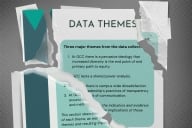You have /5 articles left.
Sign up for a free account or log in.
Professors at Carroll College cast their ballots in February over whether they wanted a union. But when administrators raised legal objections, the ballots were impounded -- and they were not counted until Wednesday, after a ruling by the National Labor Relations Board. Six months after they voted, professors found out that the union had carried the day, and the United Auto Workers would represent the faculty.
The NLRB's ruling rejected Carroll's arguments that its religious freedom would be hurt by a faculty union. The board questioned just how religious Carroll is, and said that the Presbyterian liberal arts institution did not provide evidence that collective bargaining would have any impact on religious expression.
Unionizing faculty members at private colleges has been very difficult since 1980, when the Supreme Court ruled in a case involving Yeshiva University that faculty members at private colleges generally had too much managerial authority to be eligible for collective bargaining. In recent years, a few unions have made inroads at private colleges -- in several cases at colleges with religious ties. As a result, many private colleges and unions have been intensely interested in what the NLRB would do in the Carroll case.
Carroll professors were celebrating their win Wednesday. "We think that a contract that can be enforced is going to result in higher quality education for students," said Timothy J. Fiedler, an associate professor of sociology and a leader in the union. During the two-plus years that the union has been organizing, "we've been told all along the way that we'd never make it at a private college," he said, "but we've shown that you can in fact organize at a private college."
It's not clear that Carroll administrators are ready to endorse such a statement. David F. Loeffler, a lawyer who represented the college, said that the case may end up in court, and that Carroll hasn't decided what to do. Loeffler called the NLRB ruling "intellectually dishonest" in the way it analyzed Carroll's religious ties.
Carroll's challenge to unionization said that collective bargaining would violate its rights under the Religious Freedom Restoration Act, which bars government actions that "substantially burden a person's exercise of religion even if the burden results from a rule of general applicability," unless there is a "compelling governmental interest" in the action.
As a result of the nature of Carroll's appeal, the NLRB found itself in the unusual position of considering how religious a college needs to be for it to be considered a religious college. Carroll was founded in 1846, and very early in its history affiliated with the Presbyterian Church. The college's official mission statement says, in part, that Carroll will "demonstrate Christian values," and its motto is Christo et Litteris, for Christ and Learning.
But the NLRB decision noted all kinds of ways in which Carroll's religious ties are less clear than those at many other religious institutions. The NLRB found that:
- Presbyterian officials have no administrative control over the college, nor do they own it.
- The Presbyterian Church does not appoint trustees, the president or the faculty. While the college's bylaws specify that 3 of the 33 trustees should be Presbyterian ministers, only one such minister currently is on the board.
- Students are not required to have any religious beliefs or to attend church services.
- While students are required to take one religion course, the criteria for fulfilling that requirement are so broad that, among the courses that qualify, are "Literature in Black America" and "Playing Crazy: Cultural Constructions of Madness."
Based on the nature of religion at Carroll, the NLRB said that the college's contention that its religious rights would be violated was "not supported by the evidence."
Loeffler, the college's lawyer, strongly objected to the NLRB analysis. "The board says that if you aren't like the Roman Catholic Church and you're not like a fundamental evangelical church, you're not religious," and that approach unfairly expects Carroll to conform to other faiths' models, he said.
"Mainstream Protestants have rights, too," he said. "That's a false paradigm."
Carroll has several legal options, he said, including refusing to negotiate with the UAW, and setting the stage for a battle in federal court. But Loeffler stressed that no decision had been made, and that the college might negotiate.
Fiedler, one of the professors who organized the union, said it was "totally unfounded" to say that collective bargaining would have any impact on religious life at Carroll.
The issues that galvanized faculty members, he said, were quite similar to issues that inspire faculty members at secular institutions to unionize: concerns about class size, salaries, changes in job duties, and so forth. "It's just not true to say that we'd be negotiating about anything religious," he said. "That was never our intention."
Fiedler said that the union vote shouldn't be seen by college supporters as a negative thing. Frank S. Falcone is retiring as the college's president next year, so new leadership is coming in. "The will of the faculty has now been expressed, so this is a point of change for the college, an opportunity for all of us to move ahead."








